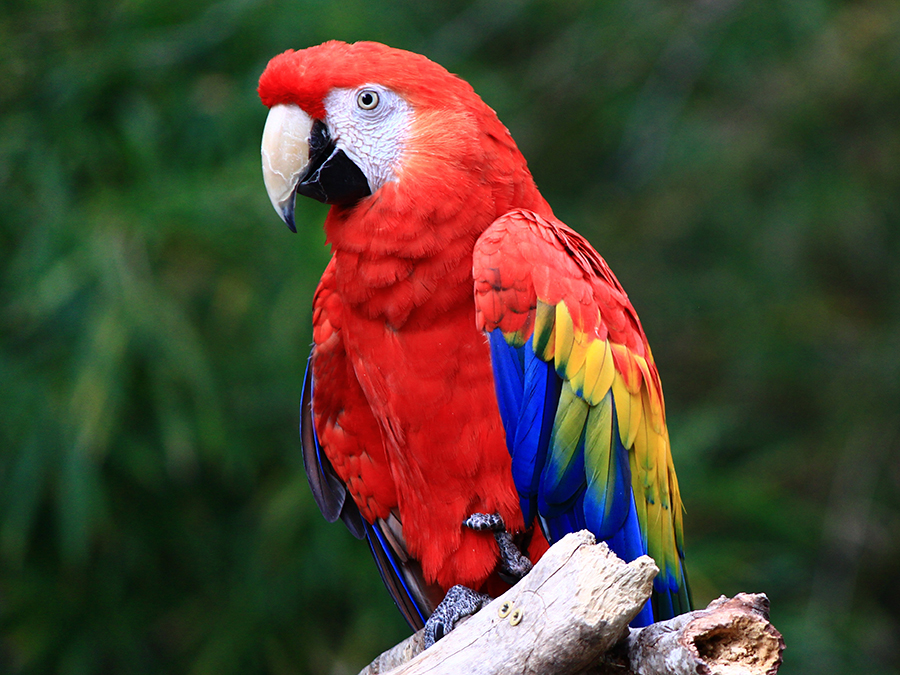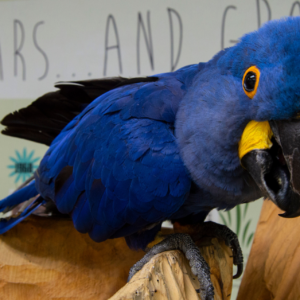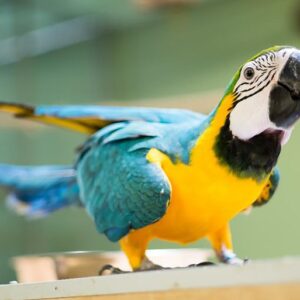Scarlet Macaws For Sale
The scarlet macaw for sale is a “sassy” bird, filled with energy and personality. It’s highly intelligent, as well as a capable escape artist.
The Scarlet macaw (Ara macao) has an enormous natural range in Central and South America and is found in two subspecies: Ara macao cyanoptera, which hails from Central America, primarily from Belize, Guatemala, Panama, Mexico, and Nicaragua; and Ara macao macao, found in South America, including the countries of Brazil, Colombia, Ecuador, French Guiana, Peru, Suriname, and Venezuela. The Central American scarlet is said to be larger and have more blue than green on its wings than the South American, if it has any green at all.
The baby scarlet macaw for sale, because of its beauty, has been depleted in the wild, though efforts are taking place in Costa Rica and other countries to help save current populations or to repopulate area formerly occupied by these birds. They are on the CITES Appendix I list, and cannot be brought into the United States from the wild for the pet trade (nor can any other parrot), though they are still being threatened in the wild due to deforestation, trapping for food and feathers, and smuggling.
Some scientists believe that these aren’t true subspecies, but the final word isn’t out on this yet, though many scientists hold rigorously to the distinct classifications. Others break the scarlets into three groups — Mexican, Central and South American based on size and coloration. In general, the Mexican scarlet has less yellow and is smaller than the others; the South American is a little larger and has a little more yellow on the wing; the Central American scarlet is the visual stunner of the three, a large bird with a wide band of yellow on the wing.
Care & Feeding
Like all birds, the scarlet macaw breeding pair for sale will thrive in a large environment, and will suffer in a cage that’s inadequate for its size. This bird is known for self-mutilation when confined, and will not do well with an owner who doesn’t plan on allowing it sufficient out-of-cage time. Large swings and toys are a must, too, because the scarlet is an active bird that likes to play and chew. If not given the opportunity to chew, it will become quite unhappy and may turn the chewing onto its feathers.
Scarlet macaw parrot for sale live in small groups in the wild, and a lone scarlet macaw in a household can become lonely if not interacted with regularly. This is not a bird for someone who isn’t home a lot, or someone who doesn’t understand the intricacies and responsibilities of bird keeping. This is a sensitive, clever bird that can easily become bored and miserable, leading to excessive noise, plucking and biting.
Macaws, including scarlet macaws, thrive on a nutritionally balanced diet, such as Nutri-Berries and Premium Daily Diet Pellets, as well as fresh fruits, vegetables and healthy table foods. If properly fed and cared for a scarlet macaw is reported to have a life span of over 70 years.
Personality & Behavior
The scarlet is a “sassy” bird, filled with energy and personality. It’s highly intelligent and is a capable escape artist. It has distinct likes and dislikes, and can become a “one person bird” if care is not taken to train the bird otherwise. The beak is formidable and it can pack a wallop of a bite, so it’s not a great bird for children. Even the tamest of these birds can be “nippy” to get its way — it’s not a companion for meek or fearful individuals.
This is an easily trainable bird and can be taught complicated “tricks” if done gently and with patience.
Speech & Sound
The scarlet macaw is not the most competent talker in the macaw family, but with those looks, it doesn’t have to talk. It will learn a few words and phrases, though it will do more screaming than talking. This is not a bird for someone living among sensitive neighbors or with an infant, unless there’s plenty of space between the bird and those who will be disturbed by its loud screeching.
Health & Common Conditions
Like other parrots, scarlet macaws are prone to self-mutilation/feather plucking, and nutritional disorders, and a variety of diseases, including Macaw Wasting Syndrome, as well as overgrown beaks. A nutritionally balanced diet and regular veterinary health exams can help keep your scarlet macaw healthy and thriving.









Reviews
There are no reviews yet.